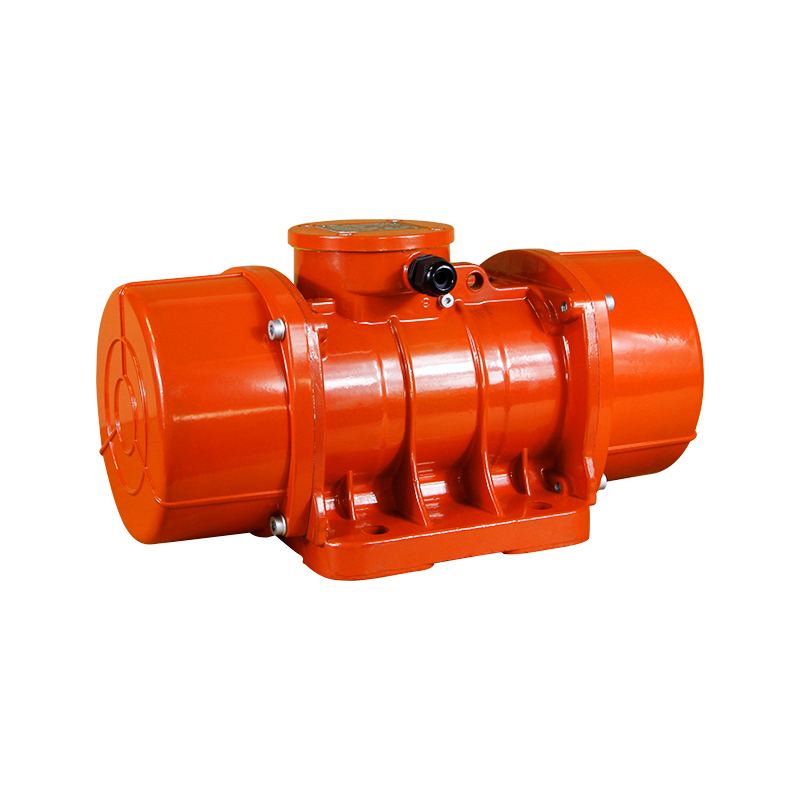In the evolving landscape of industrial technology, the DC industrial vibration motor is emerging as a key player, significantly enhancing operations across sectors such as motor mining, chemical refining, and construction machinery. These robust and versatile motors are setting new standards for efficiency and reliability, driving advancements in how industries manage vibration and material handling. This article explores the transformative role of the DC industrial vibration motor and its implications for these critical sectors.
The DC industrial vibration motor is designed to deliver consistent and controlled vibrations, essential for various industrial applications. Its ability to provide reliable performance in a compact and energy-efficient package makes it indispensable in machinery requiring precise vibration control. Whether in material handling, processing, or construction, the DC industrial vibration motor plays a crucial role in optimizing operations and enhancing productivity.
In the motor mining industry, the DC industrial vibration motor is making significant strides in improving material handling and processing. Mining operations often involve the handling of large quantities of materials in challenging environments, including dust and moisture. The DC industrial vibration motor excels in this context by providing effective vibration solutions for equipment such as vibrating screens, feeders, and separators.
The robustness of the DC industrial vibration motor ensures reliable performance even in harsh mining conditions. Its precision and efficiency contribute to enhanced material flow, better separation of ores, and more efficient processing. By integrating the DC industrial vibration motor into mining machinery, operators can achieve higher productivity and reduced downtime, aligning with the industry's goals for operational excellence and sustainability.
The chemical refining industry relies heavily on precise and consistent agitation and mixing of chemicals to achieve results. The DC industrial vibration motor plays a critical role in this process by providing uniform vibrations in reactors, mixers, and other chemical processing equipment. Its ability to deliver controlled vibrations enhances the efficiency and effectiveness of chemical reactions, to improved product quality and process stability.
In chemical refining, the DC industrial vibration motor is valued for its durability and performance in challenging environments. It operates reliably even in the presence of corrosive substances and varying temperatures. This reliability is crucial for maintaining the integrity of chemical processes and meeting stringent industry standards. As chemical refining continues to evolve, the role of the DC industrial vibration motor in ensuring high-quality production remains indispensable.
The construction industry benefits greatly from the integration of the DC industrial vibration motor in various machinery applications. From concrete mixers and compactors to vibratory plates and foundation equipment, these motors are essential for achieving performance and efficiency. The DC industrial vibration motor provides the necessary vibrations for compaction, mixing, and consolidation, contributing to the success of construction projects.
In concrete mixing, the DC industrial vibration motor ensures even distribution of vibrations, which helps in achieving a uniform mixture and eliminating air pockets. This results in stronger and more durable concrete, essential for structural integrity. The motor's compact size and powerful performance also enable more efficient machinery design, to enhanced operational effectiveness and reduced maintenance needs.
Recent advancements in DC industrial vibration motor technology are driving significant improvements in performance and durability. Innovations in motor design and materials are enhancing the reliability and efficiency of these motors, making them suitable for even the demanding applications. Enhanced thermal management and advanced vibration control are among the key developments contributing to their improved capabilities.
The integration of smart technologies is another notable trend. Modern DC industrial vibration motors are increasingly equipped with sensors and control systems that allow for real-time monitoring and adjustment. This technology enables precise control of vibration parameters, to optimized performance and energy efficiency. These advancements are helping industries achieve better results while minimizing operational costs.

 英语
英语 葡萄牙语
葡萄牙语 西班牙语
西班牙语 русский
русский







 Tel: + 86-576-86320988
Tel: + 86-576-86320988
 Fax: + 86-576-86333217
Fax: + 86-576-86333217
 E-mail:
E-mail:  Add: Dayangcheng Industrial Zone, daxi, wenling, zhejiang, china
Add: Dayangcheng Industrial Zone, daxi, wenling, zhejiang, china
